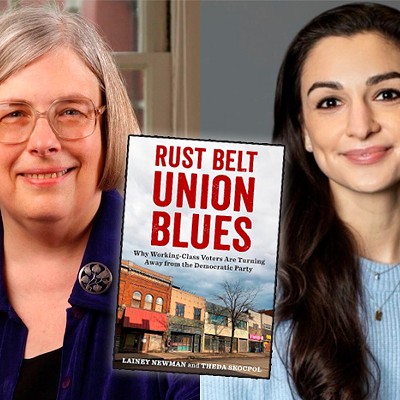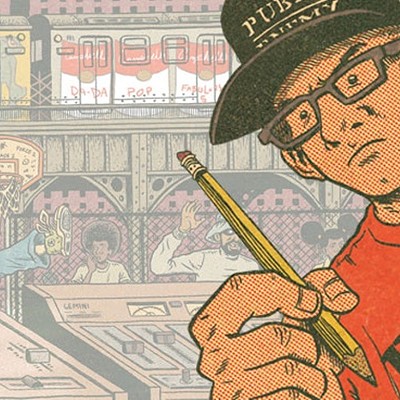They say everything that can be written, has. But you don't run into many novels in which the protagonist is a good-hearted loan shark with a comb-over and an addiction to Internet porn. Matthew Lee's debut novel Predatory Bender: A Story of Subprime Finance may, in fact, be the first great American lending-malfeasance novel. Hopefully, it won't be the last.
If the world of rip-off loans doesn't sound like fertile ground for storytelling, then you probably haven't yet been preyed upon by a predatory lender. As Lee's novel and his nonfiction afterword make clear, ripping off borrowers is an art form that would be hilarious if the results weren't so tragic. Protagonist Jack Bender and his ambitious associate, Gina Sunday, start the action by tricking a single mother from the Bronx into a $2,500 high-interest loan for the purchase of a bed, then nearly doubling the premium by tacking on expensive insurance. That's right -- bed insurance. They do it all to improve their scores in their company EmpiFinancial's computerized bonus system, which the lending conglomerate fashions into a game called Rocopoly.
In the real world, the single mothers, seniors, minorities and other targets of predatory lending usually just make their inflated payments into a system that systematically transfers wealth from poor communities nationwide to a handful of lenders and their Wall Street backers. But in Lee's book, the bed loan sets characters rolling and crackling across the table like pool balls with heavy English. Before you know it, low-level loan sharks, class-action lawyers, corporate bigwigs, hired muscle, corrupt politicians, Iraq War veterans, Wall Street analysts, reporters and one watchdog with a Web site are colliding -- and everybody is falling into somebody else's pocket.
It's apparently no accident that the head of Lee's EmpiFinancial is named Sandy Vyle -- not very different from CitiGroup Chairman Sandy Weill. It's clear from Lee's afterword that "Empi" is modeled on Citi, the world's largest financial services firm and a major purveyor of high-interest, high-fee loans. When loans involve unfair terms or deceptive marketing, they are commonly called predatory, and often violate various state and federal laws. But some of Lee's other characters -- especially one obviously patterned on New York Attorney General Eliot Spitzer -- are more than happy to let the execs who make big campaign contributions slide.
Lee knows this territory. A 38-year-old Bronx lawyer, he has spent 16 years first helping redevelop the inner city, then trying to force banks to (fairly) lend there. The executive director of several watchdog groups, most notably Inner City Press, Lee spends his days torturing lenders and their regulators by challenging bank mergers, posting embarrassing documents on his Web site, and using open-records laws to pry loose sensitive information. His demands are simple: (1) open branch offices in New York's most disinvested neighborhoods, and (2) lend fairly.
Lee's double in Predatory Bender is rebel-with-a-Web site Kurt Wheelock, but happily the author doesn't make him into a hero or an angel. Like nearly every other character in Lee's New York, Wheelock is plagued by addictions and ill-controlled passions, and routinely disregards the consequences of his actions. (The only characters who aren't cocktails of addiction, passion and irresponsibility are a pair of poor Bronx mothers, who come off as somewhat fetishized.)
Lee's wise decision is to focus on Jack Bender, who starts as a branch manager for EmpiFinancial and develops into a whistleblower, Dumpster-diver, accused terrorist, and -- most touchingly -- an absentee dad who yearns with every fiber of his sclerotic soul to be back with his daughter. Lee paints a nuanced and fascinating picture of Bender, which simultaneously helps us understand why predatory lending goes on, and why there's hope that it might be curbed.
Lee's writing style is blunt, and his jumps into and out of various characters' voices can be dizzying. The book could've used a tough editor; instead, Lee's own Inner City Press published it, typos and all. The cryptic afterword is likely to lose readers who haven't closely followed the subprime lending industry mega-mergers of recent years. But the afterword does make one indispensable point: that predatory lending is now being aggressively exported to the rest of the globe. And the book itself makes a compelling, entertaining case that in this instance, the Made-in-the-USA label isn't something we should be proud of -- that, rather, it should be ripped off.














